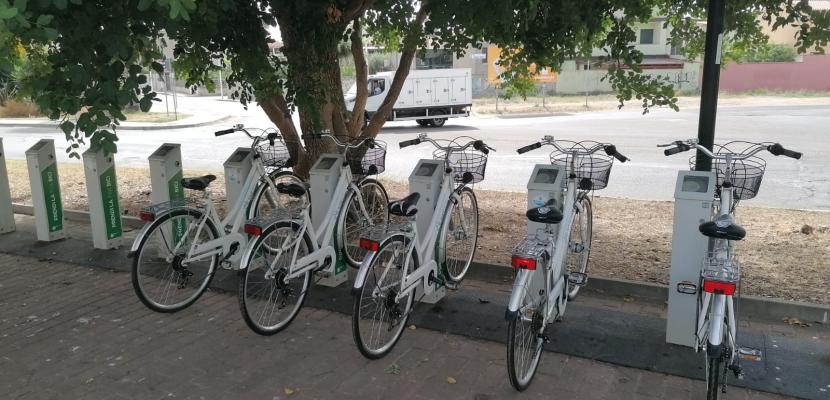
BIKEMET: Connecting Public Transport and Active Mobility in Cagliari

About this good practice
The BIKEMET bike-sharing service was devised by the Metropolitan City of Cagliari, particularly for short-distance trips where public transport (PT) is either unavailable or inconvenient due to low frequency or long waiting times. Many commuters and residents rely on private cars for these short trips, contributing to traffic congestion and carbon emissions.
BIKEMET offers a shared, flexible, and sustainable transport option, by providing automated bike-sharing stations in strategic locations across four municipalities, designed to: encourage intermodal transport by connecting bicycles with existing PT; improve accessibility; enhance convenience, with 8 stations and 40 bicycles, including 5 e-bikes, allowing users to rent a bike via the BicinCittà app and return it to any station in the network; and promote low/carbon modes. It relies on a digital rental system that provides seamless access via a smartphone app, ensuring a user-friendly experience.
BIKEMET is coordinated by the Metropolitan City of Cagliari and connects multiple municipalities. BicinCittà provides the technology, and PT operators benefit from improved multimodal travel. Beneficiaries include citizens and commuters who gain a flexible, cost-effective transport option even for the last mile of their journey, and tourists and local businesses benefit from reduced congestion and improved accessibility.
A study in its final phase will expand bike-sharing and integrate car-sharing across the metropolitan area.
Resources needed
The initiative, part of POR FESR 2007/2013 – Activity Lines 5.1.1.b, aimed to enhance cycling and commuter mobility in Cagliari with a €450,000 budget. In 2021, a renewal project upgraded the service with the latest shared mobility technology for improved efficiency and accessibility.
Evidence of success
The BIKEMET initiative from the Metropolitan City is the first of the wide-area sustainable mobility services connecting several municipalities and the capital city. From September 2022 to May 2024, 643 uses and 59 subscriptions were registered. The most used services are those in the vicinity of schools and public offices. Indeed, the service fills gaps in PT, offering a flexible and efficient alternative for short trips.
Potential for learning or transfer
The BIKEMET initiative can be considered a scalable model for other regions aiming to enhance sustainable urban mobility, since it:
Fulfils Mobility Gaps – Many cities struggle with "last-mile" connectivity between PT hubs and final destinations, BIKEMET provides a flexible solution to bridge these gaps, making PT more attractive and accessible.
Promotes Intermodality – By integrating with existing PT, BIKEMET encourages multimodal travel, a key strategy in reducing traffic congestion and car dependency.
Aligns with EU sustainability goals and presents Low-Cost Sustainable Transport – a bike-sharing system requires less investment while offering significant benefits in reducing emissions, improving mobility, and promoting active lifestyles.
Additionally, the model can be customized based on a city’s size, population density, and transport needs, making it suitable for both metropolitan and smaller urban areas.

